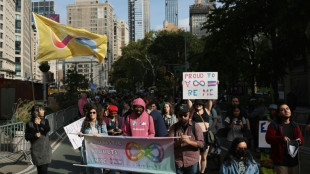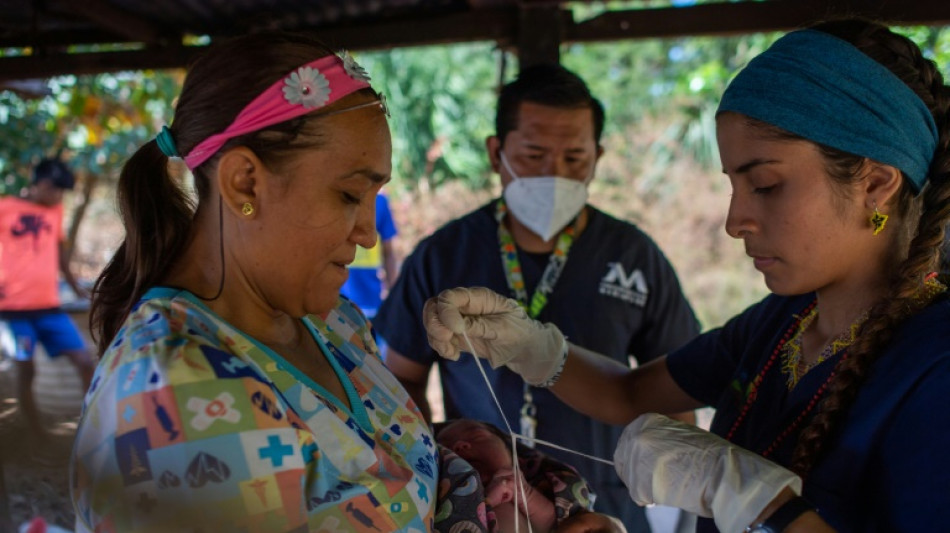
-
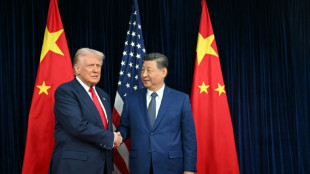 Asia markets fluctuate as investors mull Trump-Xi talks
Asia markets fluctuate as investors mull Trump-Xi talks
-
Trump, Xi ease fight on tariffs, rare earths
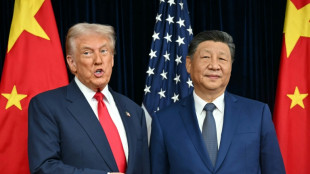
-
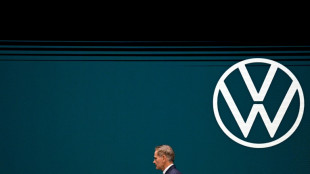 Volkswagen posts 1-billion-euro loss on tariffs, Porsche woes
Volkswagen posts 1-billion-euro loss on tariffs, Porsche woes
-
'Fight fire with fire': California mulls skewing electoral map
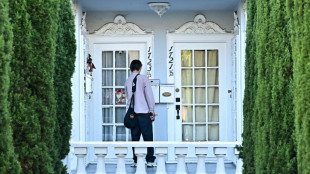
-
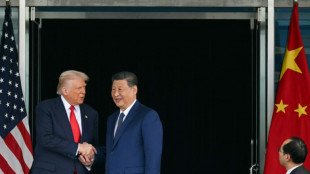 Fentanyl, beans and Ukraine: Trump hails 'success' in talks with Xi
Fentanyl, beans and Ukraine: Trump hails 'success' in talks with Xi
-
'Nowhere to sleep': Melissa upends life for Jamaicans
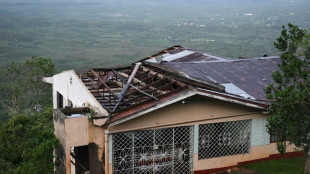
-
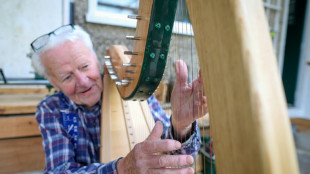 Irish octogenarian enjoys new lease on life making harps
Irish octogenarian enjoys new lease on life making harps
-
Tanzania blackout after election chaos, deaths feared
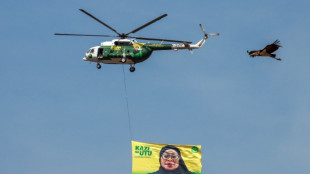
-
 G7 meets on countering China's critical mineral dominance
G7 meets on countering China's critical mineral dominance
-
Trump hails tariff, rare earth deal with Xi
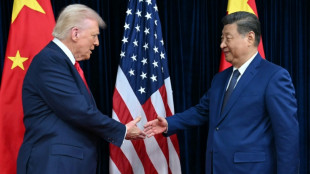
-
 Court rules against K-pop group NewJeans in label dispute
Court rules against K-pop group NewJeans in label dispute
-
India's Iyer says 'getting better by the day' after lacerated spleen
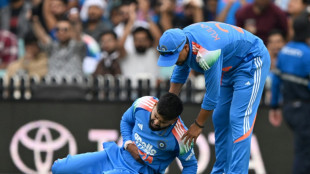
-
 Yesavage fairytale carries Blue Jays to World Series brink
Yesavage fairytale carries Blue Jays to World Series brink
-
Bank of Japan keeps interest rates unchanged

-
 Impoverished Filipinos forge a life among the tombstones
Impoverished Filipinos forge a life among the tombstones
-
Jokic posts fourth straight triple-double as Nuggets rout Pelicans

-
 UN calls for end to Sudan siege after mass hospital killings
UN calls for end to Sudan siege after mass hospital killings
-
Teenage Australian cricketer dies after being hit by ball

-
 As Russia advances on Kupiansk, Ukrainians fear second occupation
As Russia advances on Kupiansk, Ukrainians fear second occupation
-
Trade truce in balance as Trump meets 'tough negotiator' Xi

-
 China to send youngest astronaut, mice on space mission this week
China to send youngest astronaut, mice on space mission this week
-
Yesavage gem carries Blue Jays to brink of World Series as Dodgers downed

-
 With inflation under control, ECB to hold rates steady again
With inflation under control, ECB to hold rates steady again
-
Asia stocks muted with all eyes on Trump-Xi meeting

-
 Personal tipping points: Four people share their climate journeys
Personal tipping points: Four people share their climate journeys
-
Moto3 rider Dettwiler 'no longer critical' after crash: family

-
 US economy in the dark as government shutdown cuts off crucial data
US economy in the dark as government shutdown cuts off crucial data
-
Trump orders nuclear testing resumption ahead of Xi talks

-
 'Utter madness': NZ farmers agree dairy sale to French group
'Utter madness': NZ farmers agree dairy sale to French group
-
Samsung posts 32% profit rise on-year in third quarter

-
 30 years after cliffhanger vote, Quebec separatists voice hope for independence
30 years after cliffhanger vote, Quebec separatists voice hope for independence
-
Taxes, labor laws, pensions: what Milei wants to do next

-
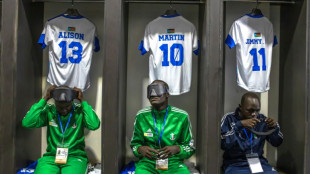 South Sudan's blind football team dreams of Paralympic glory
South Sudan's blind football team dreams of Paralympic glory
-
US says 4 killed in new strike on alleged Pacific drug boat
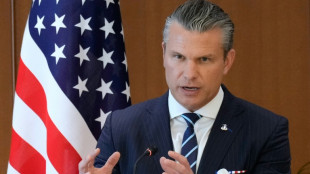
-
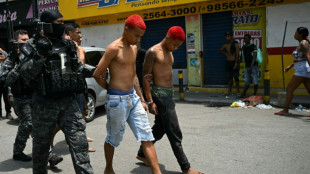 What we do and don't know about Rio's deadly police raid
What we do and don't know about Rio's deadly police raid
-
'They slit my son's throat' says mother of teen killed in Rio police raid
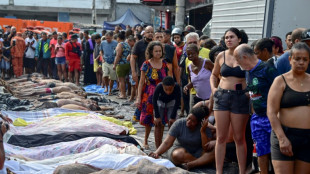
-
 Arteta hails 'special' Dowman after 15-year-old makes historic Arsenal start
Arteta hails 'special' Dowman after 15-year-old makes historic Arsenal start
-
Google parent Alphabet posts first $100 bn quarter as AI fuels growth

-
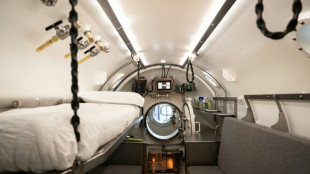 Underwater 'human habitat' aims to allow researchers to make weeklong dives
Underwater 'human habitat' aims to allow researchers to make weeklong dives
-
Maresca slams Delap for 'stupid' red card in Chelsea win at Wolves

-
 'Non-interventionist' Trump flexes muscles in Latin America
'Non-interventionist' Trump flexes muscles in Latin America
-
Slot defends League Cup selection despite not meeting 'Liverpool standards'
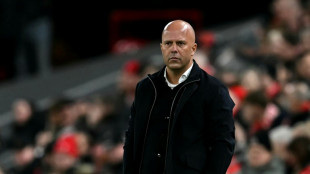
-
 'Poor' PSG retain Ligue 1 lead despite stalemate and Doue injury
'Poor' PSG retain Ligue 1 lead despite stalemate and Doue injury
-
Liverpool crisis mounts after League Cup exit against Palace

-
 Kane scores twice as Bayern set European wins record
Kane scores twice as Bayern set European wins record
-
Radio Free Asia suspends operations after Trump cuts and shutdown

-
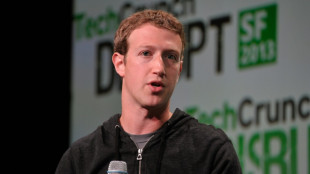 Meta shares sink as $16 bn US tax charge tanks profit
Meta shares sink as $16 bn US tax charge tanks profit
-
Dollar rises after Fed chair says December rate cut not a given
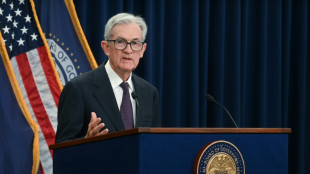
-
 Google parent Alphabet posts first $100 bn quarter as AI drives growth
Google parent Alphabet posts first $100 bn quarter as AI drives growth
-
Rob Jetten: ex-athlete setting the pace in Dutch politics
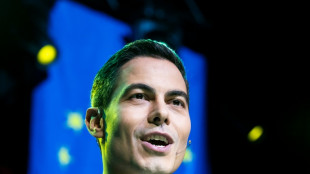

Performing medical miracles in impoverished Venezuela
Venezuelan indigenous teenager Lidiana Requena lies on an old, dirty hammock under an awning, her sunken eyes gazing at her newborn baby in the arms of the village nurse.
Unable to reach a rural medical center miles away from the Amazonian village of Chaviripa in Venezuela's southwestern Bolivar state in time, she gave birth on the ground.
The 270 Chaviripa villagers -- including 180 members of the Enepa ethnicity -- live in extreme poverty, marked by a severe lack of medical facilities.
Nurse Carmen Olivo, 40, is used to making do with limited resources and has delivered dozens of babies.
"I barely have a pair of gloves. I don't even have a pair of scissors, I cut the (umbilical) cord with a knife," she said.
"Both the mother and baby could get infected. These aren't the conditions to give birth... There's nothing hygienic, there's no clean water, there's nothing," she added.
"These people are far from everything. They don't even have the resources to leave."
- 'Not a hospital' -
When Requena's contractions began at dawn, Olivo had sent word for a car to take her the nine miles (15 kilometers) to a Maniapure Foundation center that provides health services to rural communities.
But with no telephone or radio in Chaviripa, Olivo had to send a messenger to ask for the car -- which didn't arrive until after the birth.
At the La Milagrosa donation-funded center, Requena was examined by Natalia Vivas, a 24-year-old medical intern studying at the Central University in Caracas.
Speaking to her patient in a mixture of Spanish and the Enepa language, Vivas stitched up the tears caused by the birth.
"It is important to communicate, to tell them it is going to hurt a bit. The women often don't speak Spanish," she said.
Renowned cardiologist Dr. Tomas Sanabria co-founded the foundation with a Swiss-Venezuelan couple 25 years ago.
He said La Milagrosa now "attends to the largest number of patients in the area, but it is not a hospital."
The 74-year-old started coming to the region to camp in the 1960s as student.
"From the first visits we realized the Enepa and Creoles had many needs. They asked us for consultations."
In 1995, he secured funding from an NGO to install a doctor in the area.
"A salary for a rural doctor, a car to move around, a radio. That's all I asked for," he said.
"From the start we understood the importance of being able to communicate: telemedicine."
From only a radio to internet today, Sanabria said medical workers can resolve 90 to 95 percent of issues without a face-to-face visit.
"It is healthcare for everyone at minimal cost."
Once a year the foundation arranges for a group of around 30 specialists to visit the area.
They treat up to 1,800 patients in a matter of days.
- Symbolic contribution -
Every day, 50 to 100 patients visit the center. Some walk hours to get there.
Cristobal Quilelli cycled three hours with his wife and four-year-old daughter -- who was suffering from a fever and cough -- perched on his bicycle.
Occasionally a bus full of people arrives after an hours-long journey.
Domingo Antonio, 69, and Felix Gutierrez, 73, traveled the day before and slept at the center overnight to consult a doctor the next morning.
One had kidney, heart and prostate problems, the other was suffering from joint pains.
At the center's pharmacy, Alvaro Leal gave them free medicines.
"We ask for a symbolic contribution for each consultancy but we don't turn anyone away," said Leal.
France, one of the center's main benefactors, donates 600,000 euros ($674,000) a year to help protect "indigenous populations."
"We have to protect their languages, their customs and... their health," said French ambassador Romain Nadal.
Around 32 percent of patients at the La Milagrosa center are indigenous, said Sanabria.
Over time, the foundation has extended its reach beyond the center, providing medicines, medical supplies, training and internet access to rural pharmacies.
"Here, I cried, I suffered," said Marlene Campos, a nurse in La Urbana, a village on the shores of the Orinoco river.
Thanks to the foundation she can now treat many patients she used to send to a hospital several hours drive away.
"When I arrived, I wanted to leave. Now I feel useful, I've asked to stay another year."
O.Krause--BTB




